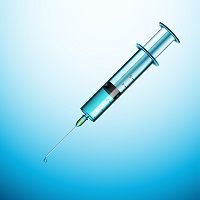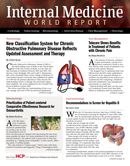Older Folks and Influenza: High Dose Vaccine 24% More Effective
Scientists from Sanofi Pasteur's Swiftwater, PA facility have published results of a study indicating that a high-dose, trivalent, inactivated influenza vaccine (IIV3-HD or high dose Fluzone®) improves antibody responses to influenza among adults 65 years of age or older.

As North Americans face another influenza (flu) season, immunizing patients is a priority to decrease morbidity. Geriatric patients are a primary concern. They are more susceptible to flu viruses, suffer more severe consequences of infection, and mount a less robust response to vaccines than younger people. Researchers have hypothesized that using amounts of antigen might create a stronger immune response in elders, but have never confirmed it in laboratory testing until now.
Scientists from Sanofi Pasteur’s Swiftwater, PA facility have published results of a study indicating that a high-dose, trivalent, inactivated influenza vaccine (IIV3-HD or high dose Fluzone®) improves antibody responses to influenza among adults 65 years of age or older. The high dose trivalent vaccine contains 4 times the amount of the flu antigen hemagglutinin in the standard formula.
This phase IIIb—IV, multicenter, randomized, double-blind, active-controlled study enrolled approximately 32,000 adults 65 years of age or older during the 2011-2012 (year 1) and the 2012-2013 (year 2) northern-hemisphere influenza seasons. They were randomized 1:1 to either IIV3-HD (60 micrograms of hemagglutinin per strain) or standard dose trivalent, inactivated influenza vaccine (IIV3-SD [15 micrograms of hemagglutinin per strain]). Both years, the vaccines were adjusted based on predicted flu strains.
After vaccination, the IIV3-HD group had significantly higher hemagglutination-inhibition titers and seroprotection.
Efficacy in reducing actual lab-confirmed illness using nasopharyngeal swabs for culture, polymerase chain reaction assay, or both is the gold standard to prove immunization efficacy. Laboratory monitoring confirmed influenza in 228 participants in the IIV3- HD group (1.4%) and 301 participants in the IIV3-SD group (1.9%). This indicates an actual reduction in active influenza.
Adverse events rates were comparable in the study’s two arms; 8.3% of participants in the IIV3-HD group experienced a serious adverse event compared to 9% of participants in the IIV3-SD group.
Previous studies had estimated a 50% efficacy rate when people 65 years of age or older received standard-dose vaccine. This study demonstrated significantly higher antibody responses and provided better protection with the high dose vaccine. Circulating influenza strains can differ significantly each year, so results from any vaccine, including high dose varieties, may vary.
